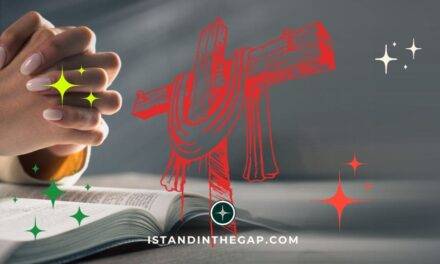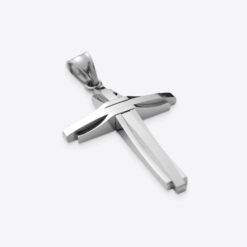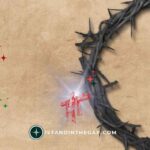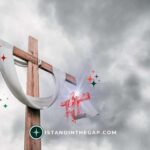God frequently summons His people to act as watchmen of restoration and judgment during times of distress. What exactly does it mean to “stand in the gap,” and how can we do it successfully?
The idea of “standing in the gap” as it is described in the Bible will be discussed in this blog post, with a focus on the stories of Ezekiel, Moses, and Jeremiah.
Let us get started!
Introduction to how to stand in the gap
A. What does Standing in the Gap mean?
Throughout the Bible, the phrase “stand in the gap” is used to represent the function of a watchman who pleads on behalf of a community or nation in the face of impending judgment or tragedy.
The gap can be compared to a hole in the defenses that encircle a town, leaving it open to attack or obliteration.
Therefore, it is necessary for the watchman to fill the gap and serve as a shield, defending the community from harm and urging it to repent.
B. Importance of being a watchman of restoration and judgment
Any town or country needs a watchman to maintain its spiritual health and well-being. The watchman is tasked with alerting the populace to impending judgment and urging them to repent, even in the face of fierce opposition and hostility, as we shall see in the instances of Ezekiel, Moses, and Jeremiah.
Without dependable watchmen, communities and nations are exposed to the negative effects of sin and disobedience to God.
C. Overview of the blog post
To understand more about our theme as a watchman of restoration and judgment, read the remaining portions of this blog article, which will examine the examples of Ezekiel, Moses, and Jeremiah.
We’ll look at particular Bible verses and consider the lessons we may glean from each illustration. We will also talk about the repercussions of sin and disobedience to God, as well as the significance of remaining faithful to Him in trying circumstances.
We will conclude by providing helpful advice for putting these ideas into practice in our own lives and in our communities.
II. Moses as a Watchman of Restoration and Judgment
A. Background on Moses
The Old Testament of the Bible features Moses prominently as a famous Israelite leader. God selected him to free the Israelites from Egyptian servitude and to guide them to the Promised Land.
B. Moses’ role in warning and lamenting for the Israelites
The Bible makes clear Moses’ function as a watchman of redemption and judgment. He scolded the Israelites when they deviated from God’s ways and forewarned them of the repercussions of their transgressions and disobedience.
According to Moses, in Deuteronomy 32:36, “The Lord will judge his people and have compassion on his servants when he sees their strength is gone and no one is left, slave or free.”
C. Moses’ faithfulness to God and protection of the desecrated temple
Moses’ defense of the desecrated temple is another example of his devotion to God. The Israelites had created a golden calf in Exodus 32 and had been worshiping it as a god. Moses was indignant to see the Israelites bowing down to the golden calf when he saw them after his encounter with God. He killed the calf and exhorted the faithful to take up swords and murder those who had rebelled against God in Exodus 32:26–28.
D. Lessons we can learn from Moses in Standing in the Gap
Moses’ example demonstrates the need of being a watchman for restoration and judgment as well as the need to alert others to the repercussions of their actions.
He also instills in us the value of loyalty to God and the necessity of preserving His holy sites.
By being alert and obedient to God in our own lives, as well as by being watchful and warning others when they depart from God’s ways, we can learn from Moses’ example.
III. Ezekiel 22:30
A. Context and background on the book of Ezekiel
Prophet Ezekiel lived during the time that the Israelites were exiled to Babylon. God called him to be a watchman and to represent God to the exiles in Babylon. His prophesies contained elements of foreboding, judgment, and restorative hope.
B. Explanation of Ezekiel 22:30 and the call of God
According to Ezekiel 22:30, “I searched among them for one who would raise the wall and fill the gap before me on behalf of the land so that I would not have to destroy it, but I found no one.”
This passage is a call for a watchman to intercede for the people.
The breach in the city’s or country’s protective wall is referred to as the “gap”. The watchman is asked to stand in that area since it is dangerous and vulnerable in order to defend and look out for the people.
C. Lessons we can learn from Ezekiel on being a watchman of restoration and judgment
As watchmen, we are obligated to act as intercessors for our communities and countries, as we learn from Ezekiel.
The people are in need of warning and encouragement to turn back to God, and we are called to be aware of the dangers that they face. We must also be dependable in communicating the message of judgment when it is called for and in presenting restorative hope when it is suitable.
In the end, we are called to obey God’s command to be watchmen and to put our faith in His power and discernment to carry out our responsibility.
IV. Jeremiah’s Example in Standing in the Gap
A. Background on Jeremiah
King Josiah, King Jehoiakim, and King Zedekiah were all kings when Jeremiah was in Jerusalem. He received a summons from God to warn the Israelites of the approaching judgment that would befall them if they did not turn from their transgressions.
B. Jeremiah’s prophetic warnings to Israel
Jeremiah was tasked with informing the Israelites of Jerusalem’s impending destruction and the Babylonian exile. He admonished them to turn from their transgressions and turn to God, but they were unreceptive. Jeremiah remained true to his calling despite the masses rejecting his message.
C. Jeremiah’s intercession for Israel
Jeremiah served as a priest who prayed on behalf of the people in addition to being a prophet. God commanded Jeremiah to go down to the potter’s house to receive a message in Jeremiah 18:7–10.
The message was that God had the ability to reshape Israel if they repented of their sins, much as the potter could modify the clay.
Despite their rejection of his message, Jeremiah prayed for the Israelites. He begged God to spare the people and pardon their transgressions.
He implored in Jeremiah 14:7, “O Lord, act for the sake of Your name, even if our transgressions bear witness against us! Our transgressions against You have been numerous and sincere.
D. Lessons we can learn from Jeremiah in Standing in the Gap
The example of Jeremiah tells us three things about standing in the gap:
- First, even if it means facing rejection from others, we must be committed to our calling.
- Second, we must pray for the conversion of those who reject our message and intercede on their behalf.
- Finally, we must have faith in God’s sovereignty and acknowledge that if we repent of our sins and follow Him, He has the ability to transform our lives and the communities in which we live.
V. How to Stand in the Gap
A. Overview of the steps to take in standing in the gap
Being a devoted follower of God means constantly standing in the gap. Here are some actions we can take to fill the void:
- Pray: The most important instrument for standing in the gap is prayer. We can ask God for help and direction in our life and the lives of those around us through prayer.
- Repentance: We must confess our sins to God and ask for His pardon. This will make it possible for us to serve as a conduit of honor for God.
- Faithfulness: We have a duty to uphold God and His Word. We shall be able to stand steadfast in the void and uphold our principles because of our devotion to God.
- Obedience: God has given us instructions to follow, which we must do. Our ability to intercede and watch over our families and communities will be made possible by our obedience to God’s Word.
B. How to be a watchman of restoration and judgment
The following are the responsibilities of a watchman of restoration and judgment:
- Warning: We need to caution others around us about the repercussions of their choices and exhort them to renounce sin and come to God.
- Lamenting: We must lament over the sins committed by our families and neighborhoods and pray for their conversion and redemption.
- Intercession: We must pray for the welfare and restoration of our families, communities, and world.
- Faithfulness: Even in the midst of adversity and persecution, we must remain faithful to God and His Word.
C. Practical tips for applying these principles in our lives
Here are some helpful hints for putting these ideas into practice in our daily lives:
- Read the Bible: We can learn God’s will and His directives for us if we regularly read and study the Bible.
- Pray: We must prioritize prayer in our lives and pray for ourselves, our families, and our neighborhoods.
- Fellowship: We must interact with other Christians and encourage one another in our spiritual journey.
- Act: To be standing in the gap and serve as a watchman of justice and restoration, we must act. This could entail admonishing, weeping, and pleading on behalf of our loved ones and neighbors.
VI. The Consequences of Sins
A. The Israelites’ worship of idols and punishment
The history of the Israelites is a powerful illustration of the effects of sin, which are abundantly illustrated in the Bible.
God brought the Israelites to the Promised Land after delivering them from slavery in Egypt, according to the book of Exodus.
The Israelites, however, repeatedly disobeyed God and embraced idolatry. God, therefore, retaliated against them by sending plagues, famine, and military losses, among other things.
B. God’s warning to the Israelites about the consequences of their sins
God often forewarns the Israelites about the repercussions of their crimes in the Old Testament.
In Deuteronomy 28, God warns the Israelites of dire repercussions if they reject His rules but promises to bless them if they do. These negative effects include illness, starvation, and confinement.
C. Lessons we can learn about the consequences of our sins
We will also bear the costs of our deeds, just as the Israelites did for their transgressions.
Sin hurts us personally and those around us, as well as separates us from God. We can take inspiration from the examples in the Bible and work to uphold God’s rules and refrain from sin.
When we do commit sin, we should also seek forgiveness from God and the people we have hurt as soon as possible.
VII. Babylonians Judged for Sins
A. Background on the Babylonians
Between the 18th and the 6th centuries BC, the mighty ancient kingdom known as the Babylonians ruled over Mesopotamia, which included what is now Iraq. They were renowned for their cutting-edge astronomy, law code, and architecture.
They were infamous, nevertheless, for treating their adversaries cruelly and violently.
B. King Nebuchadnezzar’s arrogance and punishment
One of the most notable Babylonian rulers, Nebuchadnezzar II ruled from 605 to 562 BC. He was an effective military leader who subjugated a number of nearby nations, including the Israelites.
He was also infamous for his pride and haughtiness, which contributed to his downfall.
Nebuchadnezzar is said to have had a dream in which he saw a large tree that reached the skies but had been felled, leaving only the stump. This dream is described in the book of Daniel.
Daniel, a Jewish prisoner in Babylon who offered to interpret his dream, informed him that the tree symbolized his own greatness and that, if he did not turn from his arrogant behavior, God would take it down and shame him.
Exactly as predicted, Nebuchadnezzar was removed from his throne and forced to dwell in the desert as an animal for seven years until he became humble and acknowledged the power of God.
C. Lessons we can learn about the consequences of pride and sin
The story of Nebuchadnezzar serves as a potent warning about the effects of arrogance and immorality. If they do not recognize their dependency on Him and change their sinful ways, even the most powerful and wealthy among us are subject to God’s punishment.
We are commanded to humble ourselves before God, confess our transgressions, and ask for His pardon as Christians.
Being mindful of the fact that all we own is a gift from God and that we are responsible to Him for how we utilize it, we must also take care to avoid being arrogant or proud in our own lives.
VIII. The Role of a Watchman
A. Explanation of a watchman’s role in judgment and restoration:
A watchman is a person designated by God to keep watch and alert people to imminent danger, both material and spiritual, in the Bible.
This function is frequently discussed in terms of judgment and restoration. God designated Ezekiel as a watchman in Ezekiel 3:17–21 to alert Israel’s citizens to the coming wrath for their transgressions.
The watchman’s duty was to blast the trumpet, sound the alarm, and exhort the populace to turn from their sins.
B. Importance of being a watchman for our communities and nations:
The security of our communities and countries depends on our ability to act as watchmen.
Vigilance, prayer, and a readiness to speak out against evil and injustice are necessary. God orders his people to give him no rest until he makes Jerusalem a source of honor for all of creation in Isaiah 62:6-7.
Similarly to this, we are obligated to watch out for one another and never stop praying for our communities and countries.
C. Lessons we can learn about being a watchman from Moses and other biblical examples:
Moses is a great illustration of a trustworthy watchman. He spoke out for the Israelites before God and forewarned them of the coming retribution for their crimes.
Similar to how the Israelites ignored Jeremiah’s warnings, the prophet grieved and pleaded for them. Jesus cautions his disciples to observe and pray in the New Testament so they won’t succumb to temptation (Matthew 26:41).
In conclusion, being a watchman necessitates fidelity, supplication, and readiness to proclaim the truth in love.
IX. Restoration and Faithfulness to God
A. God’s promise of restoration to the Israelites:
We can see God’s promise to restore His people throughout the Bible.
God never truly forsook them despite their transgressions and disobedience; rather, He constantly made a way for them to turn back to Him.
In Jeremiah 29:11, God says, “For I know the plans I have for you,” declares the Lord, “plans to prosper you and not to harm you, plans to give you hope and a future.” This is one instance of this.
B. Lessons we can learn about restoration and faithfulness to God:
We can learn from the Israelites’ experience how crucial it is to turn from sin and be faithful to God.
We can also learn that even after we have wandered from God, rehabilitation and redemption are still attainable. Restore to me the joy of your salvation and give me a willing spirit, so that I may be sustained, prays Psalm 51:12.
This scripture demonstrates to us that even after sinning and becoming lost, we can come to God and He will lead us back on the right path.
C. How we can apply these lessons to our own lives and communities:
By being obedient to God, confessing our transgressions, and turning away from the things that keep us from Him, we can put these principles into practice.
For the benefit of our communities and countries, we can also pray for healing and redemption. We are able to intercede and ask God for mercy and restoration just as Moses, Ezekiel, and Jeremiah did for their people.
By doing this, we transform into tools for God’s grace and agents of societal transformation.
X. Reflection on How to Stand in the Gap with Reference to Ezekiel, Moses, and Jeremiah
A. Reflection on Moses’ Example
i. Recap of Moses’ Role as a Watchman of Restoration and Judgment
God chose Moses to lead the Israelites and serve as their prophet. He was given the responsibility of freeing them from Egyptian servitude and guiding them to the Promised Land.
He acted as a watchman of restoration and judgment along the route, pleading for the people and alerting them to the repercussions of their disobedience.
ii. Reflection on Moses’ Faithfulness to God and Protection of the Desecrated Temple
Moses stayed faithful to God and committed to carrying out his mission in spite of various obstacles and failures.
He learned that the Israelites had resorted to idolatry when he received the Ten Commandments on Mount Sinai. He shattered the tablets in answer and begged God to spare the populace.
Later, when the Israelites built a golden calf to worship, Moses once more pleaded for forgiveness and defended the sacredness of the temple.
iii. Lessons we can Learn from Moses in Standing in the Gap
Moses shows us the value of devotion to God and dedication to carrying out our tasks.
We must be attentive and consistent in our efforts to intervene on behalf of our communities and countries as watchmen of restoration and judgment.
B. Reflection on Ezekiel 22:30
i. Recap of the Call to Ezekiel 22:30
According to Ezekiel 22:30, “I searched among them for one who would raise the wall and fill the gap before me on behalf of the land so that I would not have to destroy it, but I found no one.”
The need of acting as a watchman of judgment and restoration is emphasized in this verse. It serves as a call to action, imploring us to be watchful and proactive in speaking up for our communities and countries.
ii. Reflection on the Importance of Standing in the Gap for Our Communities and Nations
We have a duty to intervene and make pleas on behalf of our communities and countries as watchmen of restoration and judgment.
In order to address areas of need, we must be proactive in identifying them and taking action.
Detecting and countering possible dangers to our communities and countries requires vigilance on our part.
iii. Lessons we can Learn from Ezekiel on Being a Watchman of Restoration and Judgment
We learn from Ezekiel the value of being proactive in our attempts to speak up for our communities and countries.
We must keep a close eye on community needs as watchmen of restoration and judgment, and we must act to meet those needs.
C. Reflection on Jeremiah’s Example
i. Recap of Jeremiah’s Prophetic Warnings and Intercession for Israel
During a period of significant political and social upheaval, Jeremiah served as a prophet to the southern kingdom of Judah.
He exhorted them to repent and forewarned them of the coming judgment of God.
He persevered in his work and offered prayers on behalf of the people despite hostility and persecution.
ii. Reflection on Jeremiah’s Courage and Persistence in Standing in the Gap
The importance of having the guts and perseverance to stand in the gap is demonstrated by Jeremiah.
He persevered in his resolve to make appeals on behalf of the people in the face of countless obstacles and defeats.
iii. Lessons we can Learn from Jeremiah in Standing in the Gap
Jeremiah teaches us the value of remaining steadfast in the face of adversity and persecution.
We must be tenacious and brave in our attempts to pray for others as watchmen of restoration and judgment.
To Ezekiel what does it mean to stand in the gap?
As stated in Ezekiel 22:30, to “stand in the gap” is to pray for others, intercede on their behalf before God, and ask for His forgiveness and mercy.
What does standing in the gap mean?
In the face of imminent judgment or catastrophe, to “stand in the gap” is to act as a watchman and make a case on behalf of a community or a country. In the Bible, the phrase is used to describe the role of a defender who fills a hole in the walls that surround a town, keeping it safe from invasion or destruction.
The watchman must therefore step in to fill the void and act as a shield, protecting the community from harm and pleading with it to turn from its sins. Being an intercessor, a guardian, and a mediator for one’s community or country during times of adversity and disaster is the essence of standing in the gap.
Where in the Bible does it say I stand in the gap?
In Ezekiel 22:30, God states, “I looked for someone among them who would build up the wall and stand before me in the gap on behalf of the land so I would not have to destroy it, but I found no one.” The term “stand in the gap” is used numerous times in the Bible.
Also found in Psalm 106:23, the poet writes, “So he said he would destroy them—had not Moses, his chosen one, stood in the breach before him, to keep his wrath from destroying them.” The expression alludes to someone praying before God on behalf of others in both instances.
How can someone stand in the gap?
Interceding or praying on behalf of other people or a circumstance is known as “standing in the gap.” It entails acting as a go-between for God and individuals in need of His assistance. By fervently praying, seeking God’s guidance, and behaving in love and compassion towards others, one might fill the void.
Who is the person who stands in the gap?
Anyone who stands in the gap for someone or something in need, whether by prayer, deeds, or both, is considered to be the person who stands in the gap.
FAQs to standing in the gap
Conclusion
Finally, the biblical examples of Moses, Ezekiel, and Jeremiah are potent reminders of how crucial it is to stand up for our communities and countries, hence the need for the believer to stand in the gap today.
Their tales make clear the results of sin and pride, but they also make clear the promises of forgiveness and fidelity to God. We are called to be diligent and brave in our attempts to guide our communities toward repentance and righteousness because we are watchmen of restoration and judgment.
We must first acknowledge our own need for humility and repentance before we can effectively utilize the concepts of standing in the gap. Then, we must be prepared to confront authority and offer up prayers of intercession for our communities.
Above all, we must continue to obey God and place our faith in His promises of redemption and restoration.
Let us be inspired to act in our own lives and communities as we consider these lessons. Let’s be courageous in our faith and fill the gap for people in our community who require restoration and healing.
In the words of the prophet Isaiah, “And your ears shall hear a word behind you, saying, ‘This is the way, walk in it,’ when you turn to the right or when you turn to the left.” Isaiah 30:21

















